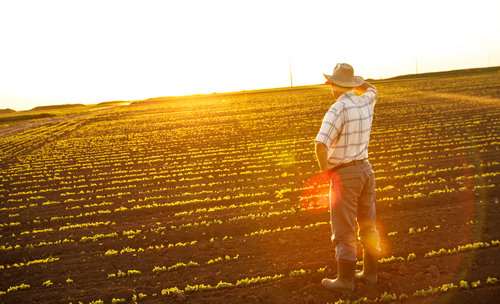Soybeans remain in different stages
By Diego Flammini
Assistant Editor, North American Content
Farms.com
The latest Field Crop report released by OMAFRA says different crops across the province remain in different growth stages.
When it comes to corn, the report states most “is at the 6 or 7 leaf stage and progressing nicely.”
Corn fields are generally beyond the critical weed-free period and some dry areas are experiencing weed escapes due to lack of rainfall and herbicide activation.
For soybeans, the report says the crop is anywhere between the “still waiting to germinate (and) third trifoliate stage” in earliest planted fields.
Pests including seedcorn maggot, wireworm and millipedes are being reported, notably in areas where beans have remained unemerged.

Emergence on eroded knolls, dry, heavy-textured soils and areas of fields not planted into moisture is patchy and some replanting is occurring across Ontario.
OMAFRA says there’s still lots of weedy fields moving beyond the first trifoliate stage.
With respects to winter wheat, OMAFRA says the crop looks promising.
“Most of the acres have received fungicide for stripe rust and to prevent Fusarium head blight. The wheat has headed out a week to ten days earlier than usual, so harvest is also expected to be earlier.”
Binbrook and Cayuga have reported army worm and cereal leaf beetle has been reported in Eastern Ontario.